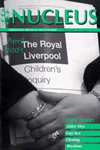In our ‘multi-faith’ society, claims to exclusive truth are frequently dismissed as arrogant, and may meet with a hostile reception. However, far from being all encompassing, pluralism is in itself a worldview which presupposes that all religions are equally valid, and hence rejects Christ’s authority. Jesus was uncompromising in saying that his words were the truth, that in fact that he himself was the truth and that no one came to the Father except through him (Jn 14:6). Views opposing Christ’s are quite simply wrong.
As Christians we acknowledge Jesus’ authority and submit to it. We recognise that it is far better to trust his words than to trust our own insight. In accepting Jesus’ authority we also accept the authority of the Bible because by the power of the Holy Spirit he put his stamp of authority on the Old Testament (Mt 5:17-18) and through his apostles commissioned the writing of the New Testament (Mt 18:18; Jn 14:26; Jn 16:13-15). It is not arrogant to admit that God’s ways are best and to live accordingly. Rather it is both arrogant and foolish not to.
In Paul’s letter to the Philippians we read that God the Father exalted Jesus to the highest place, and ‘gave him the name that is above every name, that at the name of Jesus every knee should bow’ (Phil 2:9-10). Henry Martyn, a missionary to Muslim Iran in the nineteenth century once said: ‘I could not endure existence if Jesus were not glorified; it would be hell to me if he were always to be thus dishonoured.’[1]
Are we similarly so concerned for the glory of Christ that we long to see his creation bring him honour and praise? As John Stott argues: ‘how can we worship Christ and not mind that others do not? It is our worship of Christ which impels us to witness to Christ, in order that others may come and worship him too.’[2]
We are called to glorify Christ and to witness to him. This involves standing up for all the truth he spoke; even politically incorrect truth.
































